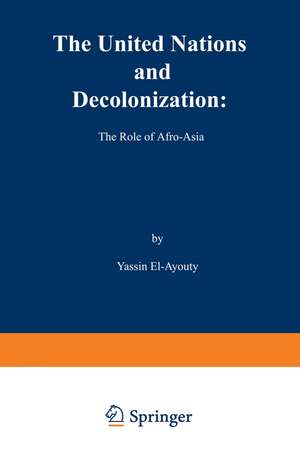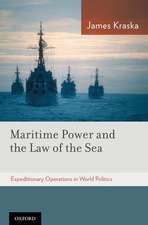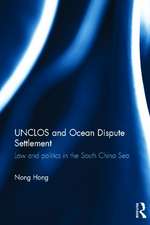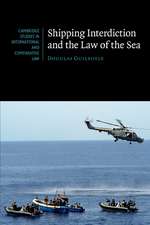The United Nations and Decolonization: The Role of Afro — Asia
Autor Y. El-Ayoutyen Limba Engleză Paperback – 31 iul 1971
Preț: 389.70 lei
Nou
Puncte Express: 585
Preț estimativ în valută:
74.57€ • 77.05$ • 62.03£
74.57€ • 77.05$ • 62.03£
Carte tipărită la comandă
Livrare economică 20 martie-03 aprilie
Preluare comenzi: 021 569.72.76
Specificații
ISBN-13: 9789024750214
ISBN-10: 9024750210
Pagini: 324
Ilustrații: 315 p.
Dimensiuni: 155 x 235 x 17 mm
Greutate: 0.45 kg
Ediția:Softcover reprint of the original 1st ed. 1971
Editura: SPRINGER NETHERLANDS
Colecția Springer
Locul publicării:Dordrecht, Netherlands
ISBN-10: 9024750210
Pagini: 324
Ilustrații: 315 p.
Dimensiuni: 155 x 235 x 17 mm
Greutate: 0.45 kg
Ediția:Softcover reprint of the original 1st ed. 1971
Editura: SPRINGER NETHERLANDS
Colecția Springer
Locul publicării:Dordrecht, Netherlands
Public țintă
ResearchCuprins
I Ideological Background of the Interpretation of the United Nations Role Toward Non-Self-Governing Territories.- I: The Effects of World War II on the Afro-Asian Position at the San Francisco Conference.- 2: The Declaration Regarding Non-Self-Governing Territories and the Concepts of International Responsibility for Colonial Administration.- II The United Nations’ Method of Organization for Dealing with the Non-Self-Governing Territories.- 3: The Afro-Asian Attitude Towards the Creation of One-Year Committees on Information from Non-Self-Governing Territories: 1946–1948.- 4: Impact of the Afro-Asian Position on the Establishment and Continuation of Committees on Information for Three-Year Periods: 1949–1958.- III The United Nations’ Method of Procedure for Dealing with the Non-Self-Governing Territories.- 5: The Afro-Asian Emphasis on the General Assembly’s Competence in the Determination of Non-Self-Governing Territories.- 6: The New Afro-Asian Formula for Swift Decolonization and the Follow-up of Chapter XI.- IV Conclusions.- 7: Recapitulation of the Main Afro-Asian Contributions.- 8: Developments from 1963 to 1970.- Territories Which Became Independent Since The Establishment of the United Nations.- I. Trust and Non-Self-Governing Territories.- II. Other Territories.- III. Guide Showing Original Names of the Territories.

















